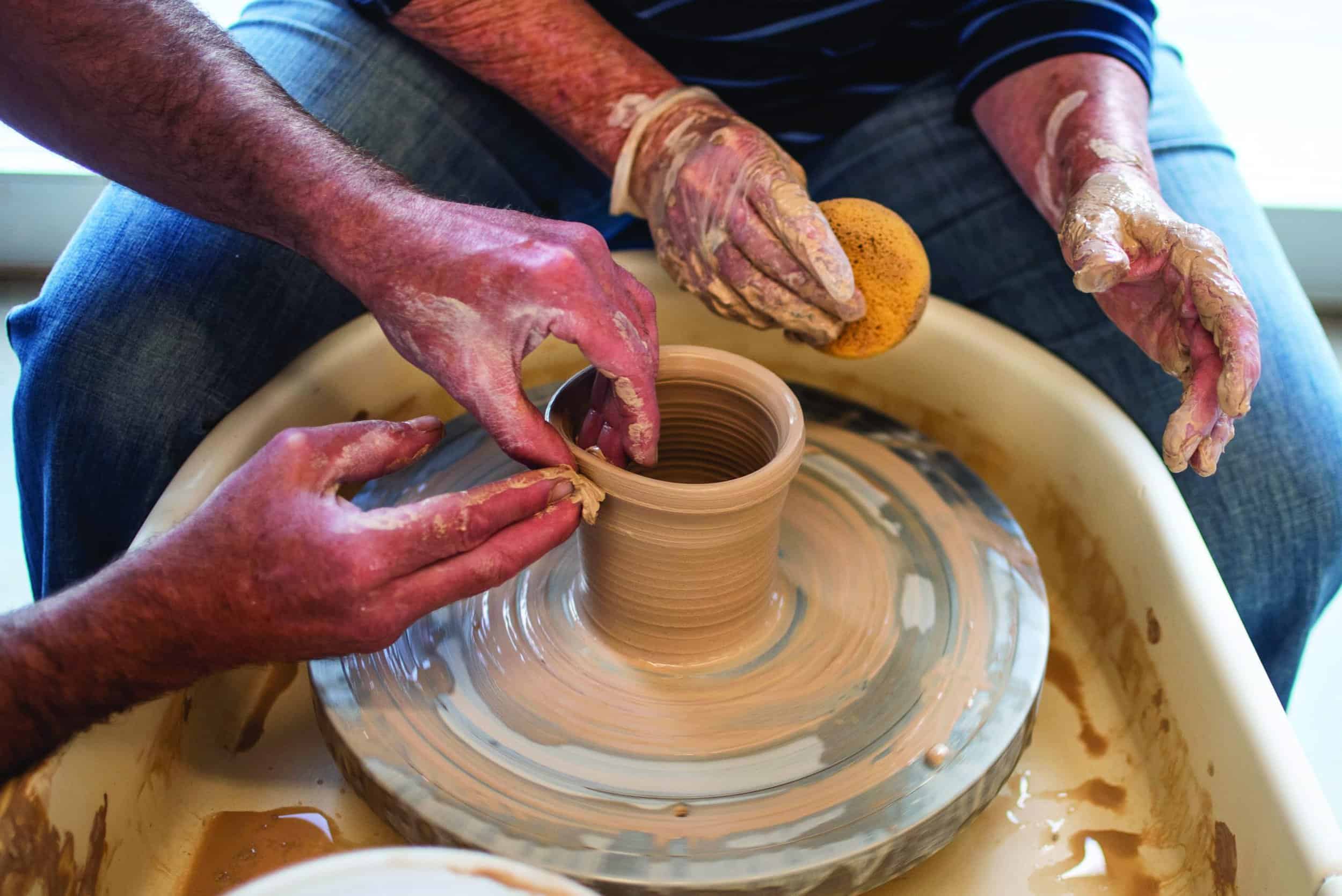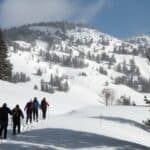Read The
Current Issue
The Joy of Learning
Learning something new as an adult is good for your brain, and, if you approach it correctly, can even be done joyfully.
// By Julie Fustanio
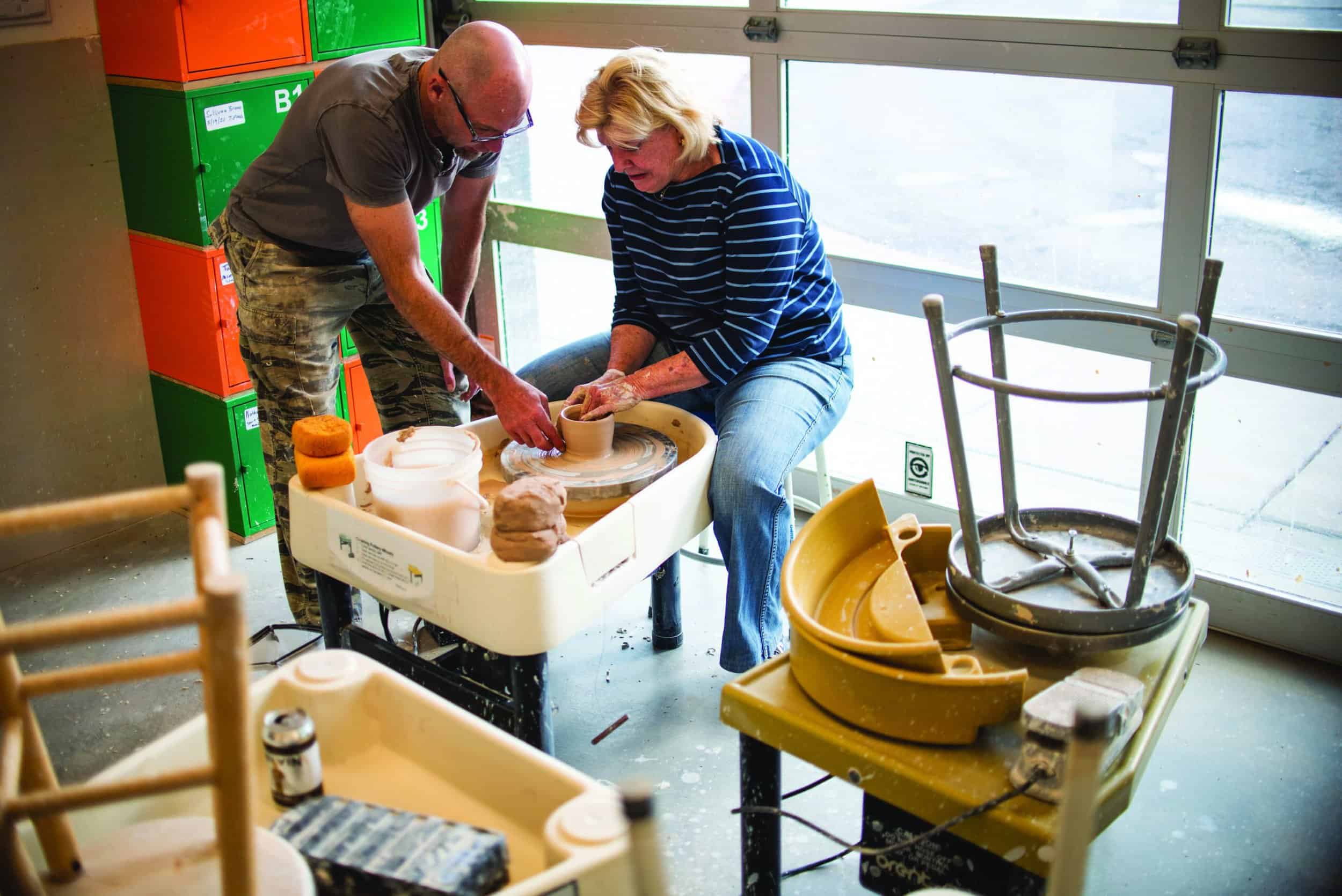
In 2014, just after the hype of the ice bucket challenge, I decided to do a 365-day handstand challenge. I was inspired by my yoga teacher who posted pictures of herself upside down all over the world, spreading joy and strengthening her core. Previously, I had not been a handstander; at first, I could only kick up against a wall. By the end, I had gotten so good at handstands that I didn’t think twice about doing one on an airplane (in the aisle) or on a mattress (the squishiness adding to the difficulty). I was able to kick up from almost any surface. A friend told me that I never seemed lighter and more content than I did after that year. I wasn’t totally surprised: learning how to do a handstand at 43 years wasn’t pretty at first, but by the end, I had a new confidence.
I didn’t stop learning new skills with handstands. Over the past year, I learned to play the harmonium, a stationary accordion often used in kirtan, an ancient Indian call-and-response form of chanting. Truthfully, I sucked at it—and am still far from great—but I love the practice and the vulnerability I experience when I share it with others.
It turns out you can teach an old dog new tricks. Tom Vanderbilt, a journalist and the author of the 2021 book Beginners: The Joy and Transformative Power of Lifelong Learning, goes even further, writing that not only can you teach an old dog new tricks, but that you should. Harvard Medical School studies reveal that the aging brain is better than younger brains at detecting relationships between diverse sources of information, capturing the big picture, and understanding the global implications of specific issues. But the aging brain also experiences brain fog, and the National Institute on Aging reports that the hippocampus, the area of our brain responsible for learning and memory, shrinks as we get into our forties and fifties. Learning something new as you get older can combat brain fog and exercise your hippocampus, though.
But this is easier said than done, of course. As anyone who went to school knows, learning—especially something new—can cause a slew of negative emotions, from feelings of failure to disappointment and unworthiness, among others. But Vanderbilt and the research he cites make the case that our brains can be trained to learn new things joyfully. For me, going upside down every day not only improved my core strength, but it also uplifted my mood and made the people on the sidelines smile too. Handstands were fun, but it took work to get to that point.
Vanderbilt and the research he cites make the case that our brains can be trained to learn new things joyfully.
“When we get older, especially if we get rigid, our desire to try something new atrophies, and our world gets narrow and not nearly as fun,” says Sandy Schultz Hessler, an avid midlife learner and the founder the Start-Up Institute, a boot camp for entrepreneurs who want to start a new business—perhaps the ultimate learning-something-new-challenge. At 57, Hessler went back to school to complete a PhD in psychology she had had to abandon in 1994. She is presently in her second year of coursework and will then devote herself to her dissertation, which looks at integrity in leadership. About her coursework, Hessler says, “I don’t think my mind remembers as much as easily as it did in my twenties and thirties, but I have wisdom from 30 more years of life.”
An example from Hessler’s PhD coursework that highlights the pros and cons of being an older student is a neurobiology class that she enrolled in last year. “It wasn’t a requirement, but I wanted to learn the physiology as well as the psychology,” she says. “I don’t know if it was a class I could have succeeded at back when I was in college, but last year, it was brain overload with the three other classes I was taking. I decided to drop it and just do it on its own—take it next summer when I’m not doing something else. Dropping the class was frustrating, but also showed the wisdom you can gain with life experience. An interesting thing about being older is that you can look at things and realize you’re doing them for yourself and you can do them your own way. Thirty years ago, I don’t know that I would have had the clarity to follow my own unique path without being intimidated.”
Going for her PhD in psychology wasn’t the first new thing Hessler learned in middle age. In her forties, she learned how to snowboard. “When he was eight-years-old, my older son asked Santa to bring him and his little brother snowboards. I decided that mom and dad would get snowboards too,” says Hessler, who was an intermediate skier at the time. The family learned how to snowboard together. “I broke my wrist in two places and killed my knee when I was first learning, but I wasn’t going to stop,” Hessler says. It was actually the moment she broke her wrist that Hessler realized she was a snowboarder. “It was the last day of the season, and I was just so excited to be alive. The morning sun was rising over the mountains, and I was out with my family and I put my hand down and broke my wrist,” she says. “My mindset wasn’t, ‘I’m a bad snowboarder,’ but, ‘at least this happened on the last day of the season; by the start of next season, I’ll be healed.’”
Hessler continues to snowboard to this day. She has been a mountain host at Jackson Hole Mountain Resort for four of the last five years. “Learning to snowboard taught me about so much more than snowboarding. It opened my world to vulnerability and humility and to the fun of being able to make mistakes,” she says. “Our culture is so often accomplishment- or goal line-based, and our egos get wrapped up in that. Failure is a blow to one’s ego, so we become constricted and fearful of putting ourselves in situations in which we might fail. Learning something new, you will fail, and that is actually good.” One of Hessler’s mantras is a quote from Helen Keller: “Life is either a daring adventure or nothing at all.” Hessler says, “Sometimes being daring is scary, but you can push past that fear.”
“I don’t think my mind remembers as much as easily as it did in my twenties and thirties, but I have wisdomfrom 30 more years of life.”
—Sandy Schultz Hessler
Still not sold on putting yourself out there to try and learn something new? Maybe nature, which surrounds us in Jackson Hole, can help. Sarah Kline, a mental health therapist and yoga teacher, says there’s an effortless joy of being in the moment that comes when you notice something in nature. This—whether a breeze in the trees or the blanket that the snow creates on the ground—inspires us to relax and be curious and, particularly relevant for getting into a mindset to try something new, also encourages mindful meditation. Kline cites research that shows that even short-term meditation increases blood flow in the anterior cingulate cortex, the region of the brain associated with self-regulation, attention span, and cognitive flexibility—all things that are important when learning. Meditation can also help regulate negative thoughts and decrease emotional reactivity, more pluses when you’re trying to learn something new.
Put these benefits of mindful meditation together and you can access the Zen Buddhism concept of shoshin, Japanese for “beginner’s mind.” Kline describes this as “having an attitude of openness, eagerness, and lack of preconceptions when studying a subject. But, Kline says, “Sometimes our subconscious mind hijacks us and prevents us from getting to a beginner’s mindset. The ego puts up a battle because people get attached to winning.” Our egos can make us fearful. If this sounds like you, Kline suggests trying to relearn a skill you enjoyed when you were younger. This could be anything from ballet to playing an instrument or drawing. The goal is to create a sense of play, stimulate your creativity, and build your confidence. “There is something about going back to a creative outlet you found as a child and were good at that strengthens your ability to learn new things,” Kline says.
Seeing others learn new things can also inspire you. On Diwali, a major Indian festival celebrated by Hindus, Jains, Sikhs, and some Buddhists, I made a video of my beginner-self playing the harmonium and chanting “lokah samastah sukhino bhavantu” (we shine like diamonds in the sun). Initially I shared it only with friends. In the spirit of this article, I’ve posted it on my Instagram account (@juliekling). My hope is that it might inspire you to try something new. JH
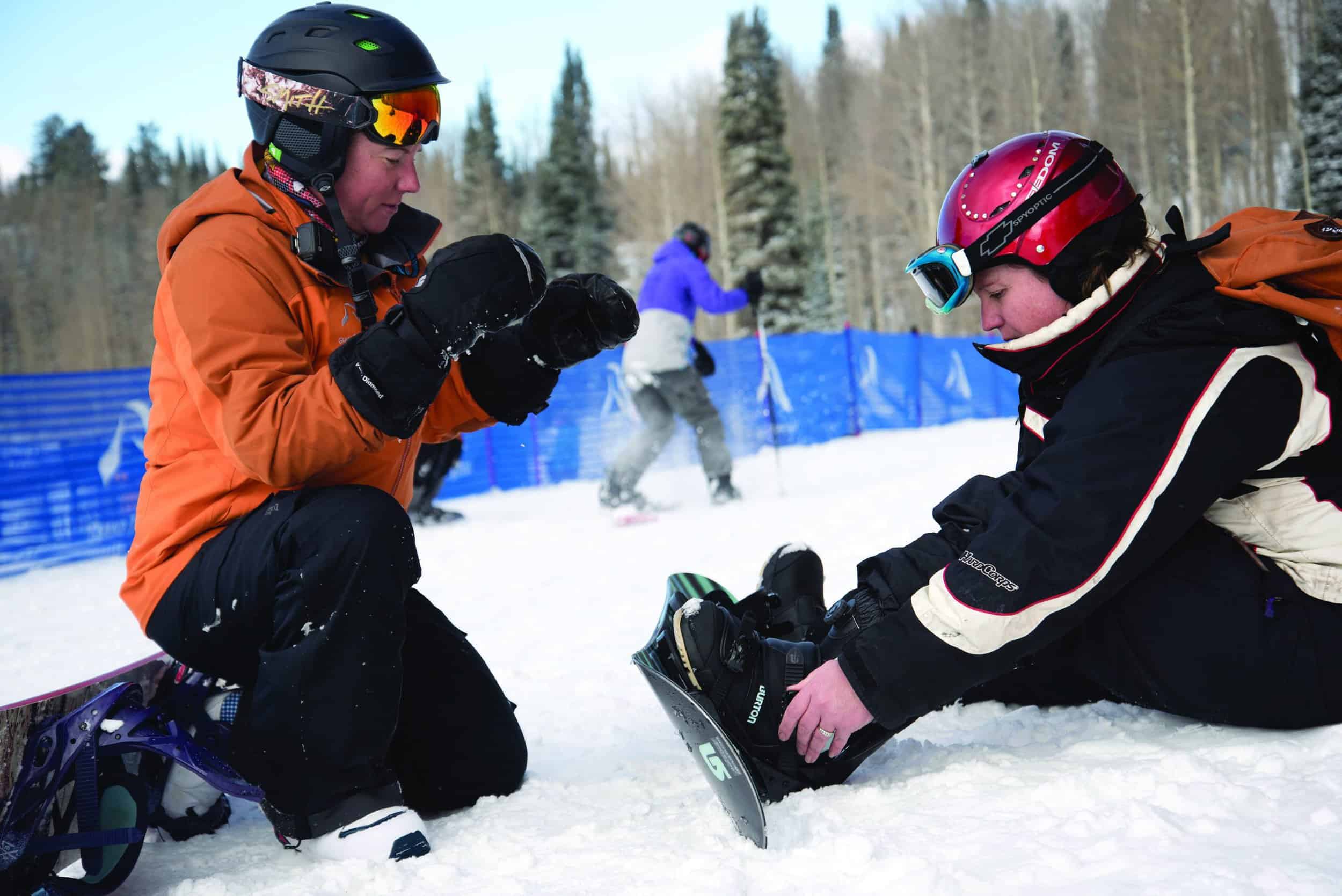
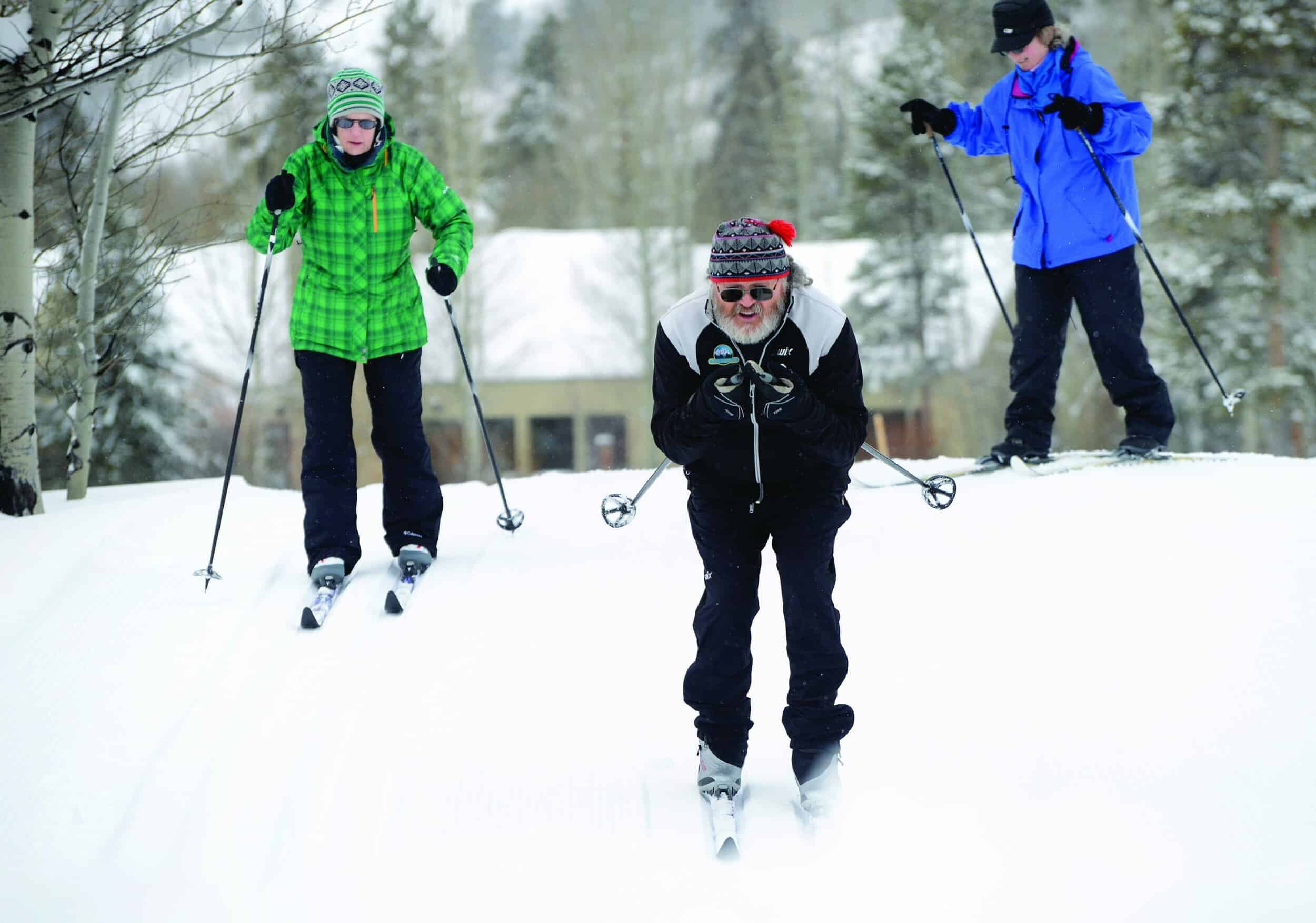
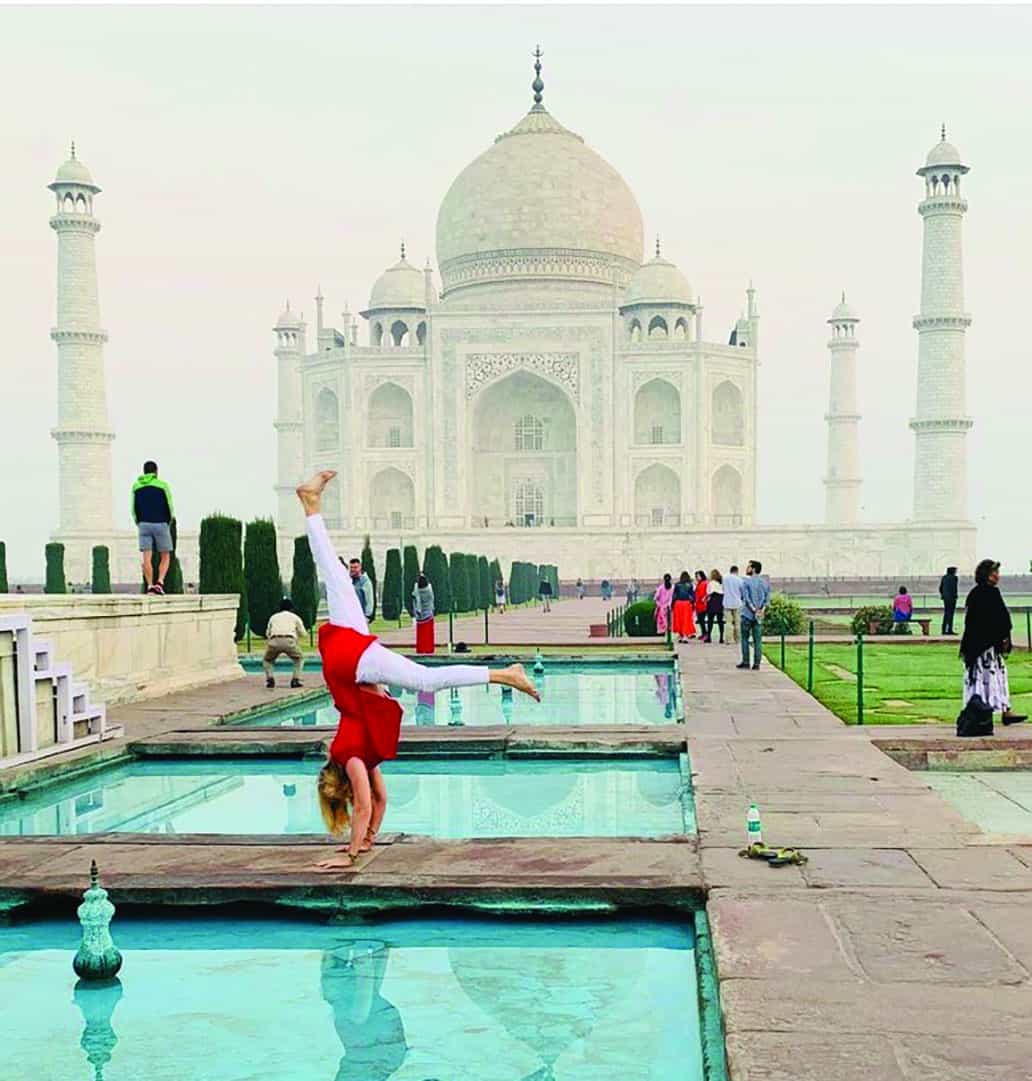
How To Forget What You Know
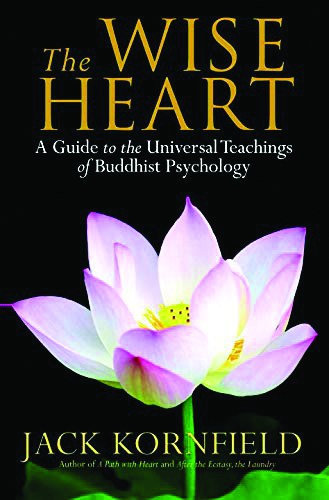
In his book The Wise Heart, author and Buddhist practitioner Jack Kornfield recommends sitting quietly and focusing on your breath or body.
He then writes:
When you feel settled, bring to mind a time 10 years ahead. Recognize that you don’t know what will happen then. Feel the not knowing and relax with it. Think of the earth spinning through space with hundreds of thousands of people being born and dying every day. Where does each life come from? How did it start? There are so many things we don’t know. Feel the truth of a don’t-know mind, relax, and become comfortable with it.
Now, bring to mind a conflict, inner or outer. Be aware of all the thoughts and opinions you have about how it should be, about how they should be. Now recognize that you don’t really know. Maybe the wrong thing will lead to something better. You don’t know.
Consider how would it be to approach yourself, the situation, the other people with don’t-know mind. Feel it. Don’t know. Not sure. No fixed opinion. Allow yourself to want to understand anew. Approach it with don’t-know mind. With openness. How does don’t-know mind affect the situation? Does it improve it, make it wiser, easier? More relaxed?
Practice don’t-know mind until you are comfortable resting in uncertainty, until you can do your best and laugh and say, “Don’t know.”
—excerpted from The Wise Heart
3 Easy Ways to Get Into a Learning Mindset
1.Brush your teeth with your nondominant hand. Using your opposite hand strengthens neural connections in your brain, and even grows new ones.
2. Roll around on the ground with your pet, or your grandchild. Play helps the plasticity of the brain and limits toxic stress.
3. Practice “don’t-know mind,” a Korean Zen theory that our childlike mind is enlightened, and it is our experiences as we age and formulate ideas, opinions, and concepts that create suffering. By imagining you don’t know, you are open to learning and new possibilities. (See the sidebar on page 88 for how to practice this.)

